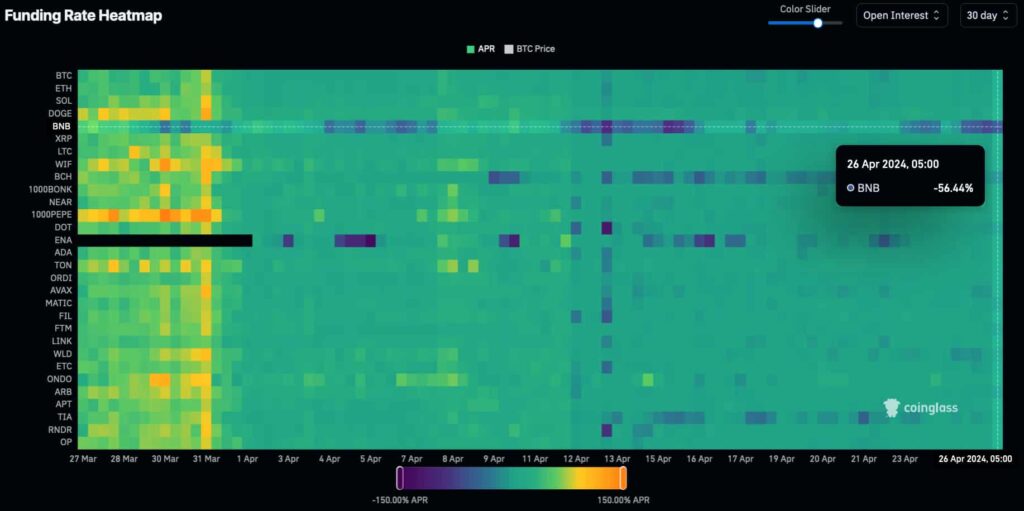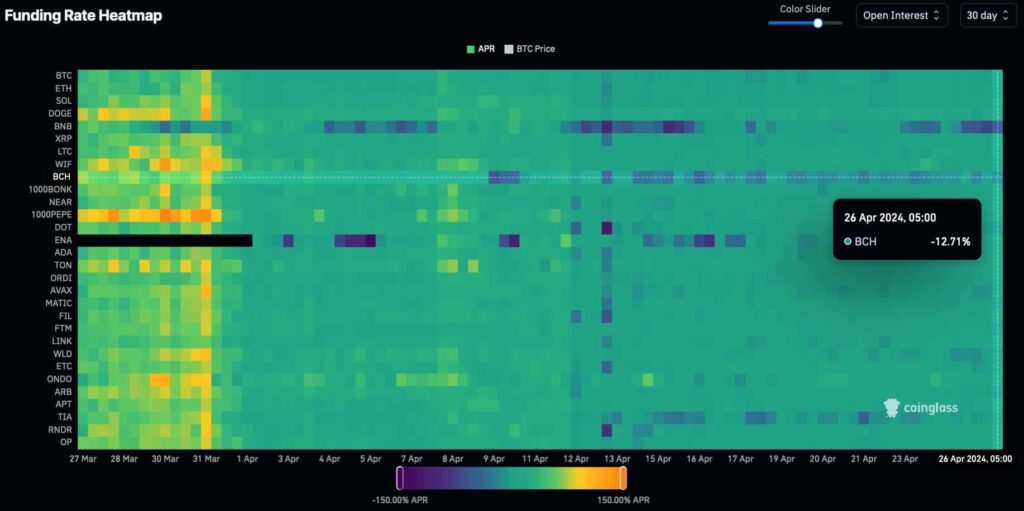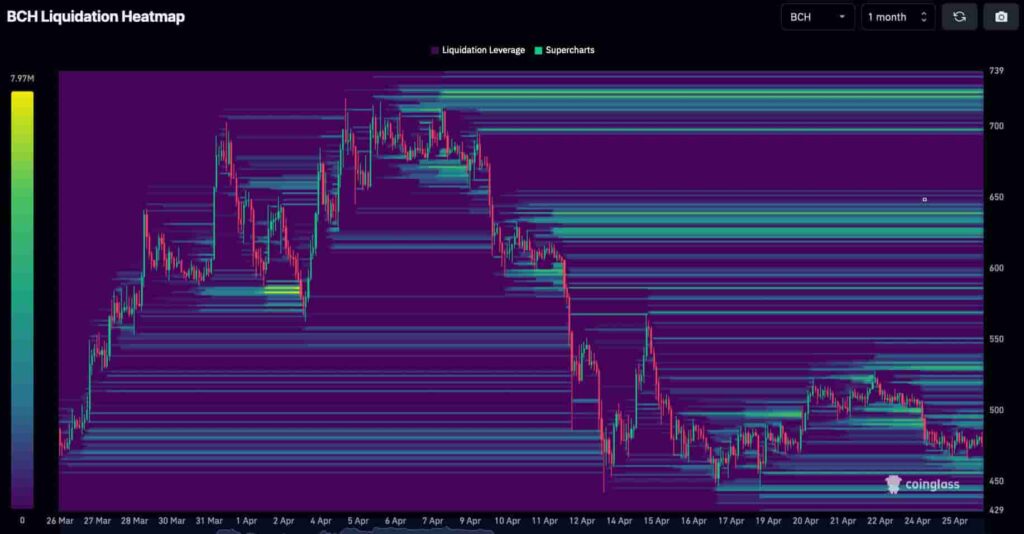The cryptocurrency market has been trading sideways in the past week as traders seek insight into its next direction. Nevertheless, the short-selling open interest remains unbalanced for two cryptocurrencies that could experience a short squeeze next week.
When cryptocurrency traders open short positions, they provide collateral and agree upon a liquidation price above the position’s opening. If the underlying asset’s index price reaches this target, the exchange forcefully closes the position and liquidates the collateral.
Furthermore, derivatives exchanges set a funding rate according to the long/short ratio to keep the market balanced. In summary, short sellers must pay a funding rate interest to long-position traders if there are too many short positions. This also threatens liquidation, as the collateral is drained within the usually 8-hour interest payment.

Funding Rate Heatmap, 30-day, BNB. Source: CoinGlass
Bitcoin Cash (BCH) short squeeze
Meanwhile, Bitcoin Cash (BCH) also has a significant negative funding rate, which has remained steady this week. As of this writing, BCH short-sellers are paying over 12% interest to long-position traders, the second-highest among other cryptocurrencies.

Funding Rate Heatmap, 30-day, BCH. Source: CoinGlass
Additionally, the Bitcoin Cash liquidation heatmap shows two meaningful liquidity pools that could become targets for a short squeeze. First, in the $600 to $650 price range, and second, above the $700 level.

BCH Liquidation Heatmap, 1-month. Source: CoinGlass
However, traders must remain cautious, as high negative funding rates and relevant accumulated liquidations are insufficient to cause a short squeeze. The prices must surge to trigger these liquidations, which requires a positive sentiment to trigger the movement.
Crypto traders must consider different factors to make profitable decisions while remaining cautious and having a solid risk management strategy.
Disclaimer: The content on this site should not be considered investment advice. Investing is speculative. When investing, your capital is at risk.















